|
Grammar is a key component of any language. It provides a structure in which vocabulary can be arranged into a comprehensive sentence and a method for speakers to express themselves in conversation. French grammar often seems more complex and difficult than English, but it's clear and defined nature can provide the learner with a consistent toolbox to understand and to be understood. The French language is founded on a traditional grammatical structure deriving from the rules of Vulgar Latin spoken in the Roman Empire. Hence if you learn your French grammar well, you’ll already be flying ahead when learning other Romance languages. In France all school children learn grammar to a very high level, something that is less common in English-speaking schools, and so it can sometimes feel like we are playing catch-up. In this blog, we will look at the very basics of French grammar and how to practice using it. A sentence is made up of two important things:
Let’s break this down together…. Nouns The subject/object of the sentence is the noun. It can refer to a person, place or thing. In French nouns always have a gender and can be either masculine or feminine. A noun is always preceded by an article, and this in turn changes depending on the gender of the noun: Note that if the noun begins with a vowel or an h, you put l’ before the word instead of le or la: Although there are exceptions, the ending of the noun will often tell you what gender it is: Like in English, the noun is altered in French if it is referring to a plural number of objects. This is done be adding an s at the end of the word, and the article is also altered. Note:
Verbs Verbs are “doing” words and describe actions that are taking place. We learn verbs in their infinitive form and their respective conjugations. In French infinitive verbs are separated into different group endings: The verb is put through different tenses (present, past perfect, imperfect, future etc.) to express if the action was done in the present, past or future. In French the present tense works much the same as in English, although there is no need to add in “is” or “does”: Here are some regular verbs in the present tense: Any regular verb can be conjugated with these endings by taking their ‘stems’ and adding the conjugations in bold. The stem of the verb is part of the verb up until the ending: There is no method to learning irregular verbs and their conjugations, we just need to memorize them! Two important irregular verbs to know are to be and to have: Can you spot the verb in these sentences?
Answers:
Let’s check you know how to conjugate the regular verb in the present tense.
Answers:
Marie __________ dans un boulangerie avec sa mère. Elles ________ des baguettes tous les matins. Marie commence à travailler à huit heures du matin, et elle _______ à 15h. Où ___________ - vous? Answers: travaille, vendent, finit, travaillez Bravo! Here are some regular verbs to help you get started in your practice: Adjectives Adjectives are words that describe nouns. In French the adjective mostly comes after the noun and is altered depending on the gender and quantity of the noun. Example: Can you tell how the adjective changed for the feminine noun? An e was added! When the noun is in the plural, we add an s to the end of the adjective: There are of course some exceptions: 1. Don’t add an e if the adjective already ends in one La cuisine est sale. Le salon est sale. 2. When a single adjective is describing two or more nouns of different genders, we use the masculine plural Les garçons et les filles sont forts. 3. And finally a few irregular adjectives we need to memorize: Whilst most adjectives do fall after the noun here are some that are commonly used before the noun:
Beau Bon Court Grand Gros Haut Jeune Long Mauvais Meilleur Nombreux Petit Tout Vieux Did you get all of that? Try filling in the blanks with the correct form of adjective: J’habite dans une _______ (big) maison avec mes parents et mes soeurs. Mes soeurs sont très ________ (beautiful). Ma mère est très __________ (intelligent) et elle travaille dans un bureau ___________ (important). Mon père prépare de la nourriture __________ (delicious). Nous avons un chat _________ (cute). Answers: grande, belles, intelligente, important, délicieuse, mignon So that was a little introduction to French Grammar. In your studies ensure that you practice and learn slowly, fully understanding the logic behind the grammar before moving on to the next topic. Once you feel you’re ready, be brave and talk as much as you can! One tip could be to record yourself speaking, then listening back and check on your grammar. As you progress you will learn about:
If you would like to learn more about our course offerings at the Music & Language Learning Centre, schedule a free consultation with us today.
0 Comments
Leave a Reply. |
AuthorWrite something about yourself. No need to be fancy, just an overview. Archives
June 2024
Categories
All
|
Music & Language Learning Center |
Music Classes |
Language Classes |
MUSIC AND LANGUAGE LEARNING CENTER 2024

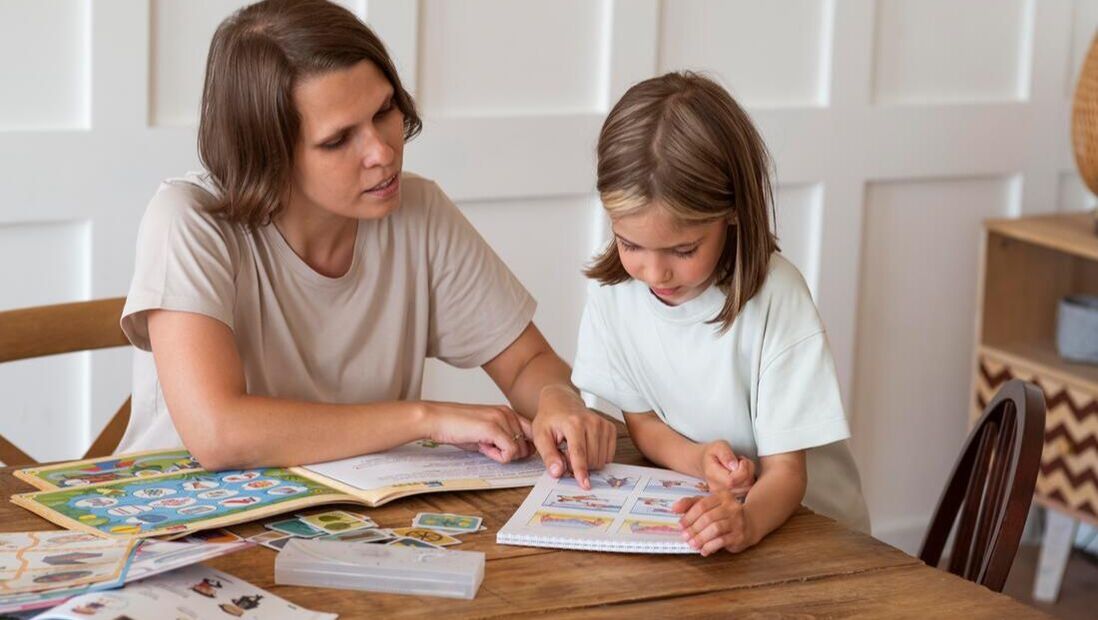




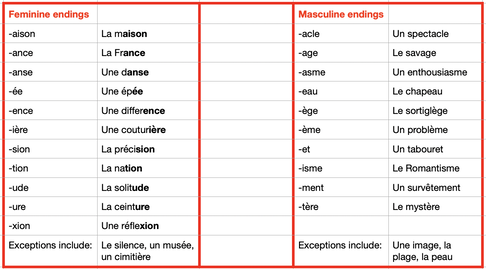
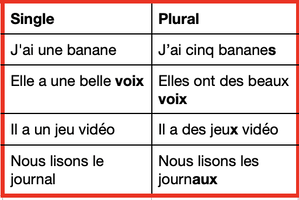




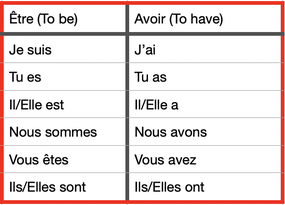
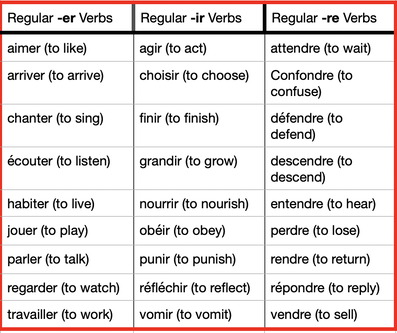


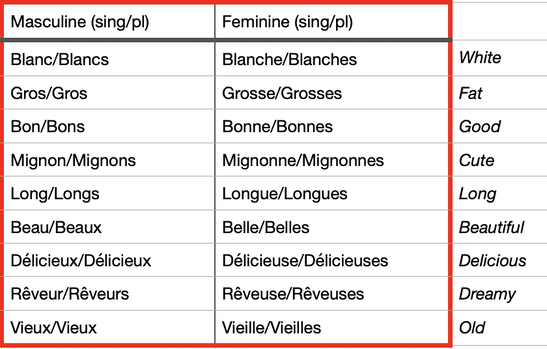

 RSS Feed
RSS Feed

